all of the selves we Have ever been
0 Comments
They paved paradise and put up a parkin' lot With a pink hotel, a boutique, and a swingin' hot spot… They took all the trees, and put 'em in a tree museum And they charged the people a dollar and a half to see them Don't it always seem to go That you don't know what you got till it's gone They paved paradise, and put up a parking lot… As I pulled into the parking lot of a large local shopping center, an earworm wriggled to life inside my head: “They paved paradise and put up a parking lot…” an old Joni Mitchell hit. I smiled to myself at the memory and the words, and I thought it might be time to hit the pavement at my favorite tree museum, The Franklin Park Conservatory. I went into Staples and purchased ink cartridges for my home printer. Finished with the errand, I stepped to the automatic exit doors. As they slid open, I heard it. Like a graceful flock of birds, the notes rose on the air and danced in the twinkling and brilliant sunlight of an unseasonably warm winter day. I was propelled in the direction of the sound and the light. Somewhere nearby, a violin played Leonard Cohen’s Hallelujah. The music was so moving that I felt the urge to both weep and dance at the same time. I was not alone in this. At that very moment, the doors of Target slid open and a tiny preschooler stepped onto the sidewalk and immediately froze in his tracks. His mother tugged on his arm, but he was there to stay, eyes wide and pointed in the direction of the music. Surely, the child saw it for the wonder that it was. We both stared at a man standing next to a portable speaker. We watched as he swayed and slid the slender bow across the strings of his violin. The instrument’s case lay open beneath a sign sharing news of the man’s financial hardships--his need to pay his rent and support two children. As I dug deep inside my purse for cash, I heard a couple walking by saying it was probably a scam. I was taken aback by the irony of the situation: people flocking to this shopping center to purchase without question food, pharmaceuticals, and other merchandise from companies that overcharge us, produce products that harm us, and create waste that destroys our environment, yet this gentle man producing beautiful music was suspect. His performance was just too foreign in this land of parking lots, boutiques, pink hotels, and swinging hot spots. In the beauty of the moment, I pledged my allegiance to the wide-eyed child still capable of trust and wonder. I took what cash I had and dropped the folded bills into the open violin case. “The world needs more music,” I said. The violinist nodded his thanks and continued to play. Filled with anticipation each time I step out onto a parking lot, I bring cash…and I listen. I hope to hear the stop-you-in-your-tracks sounds of that magic violin. Though I wish him well and that all of his needs will be met, I pray this street musician never stops playing. The world needs more music and a little bit of paradise in every paved parking lot. It’s eight o’clock on a Friday. The out-of-town crowd shuffles in. There’s an old friend sitting next to me waiting for the show to begin. She says, “I hope he plays me some memories, something I’m sure how it goes, the sad and the sweet that I knew complete when I wore a younger girl’s clothes.” Then he says, “I’ve got nothing new to play for you,” and the crowd whistles and cheers with delight. We agree it is sweet that we know them complete ‘cause that’s what we came for tonight. It’s a pretty good crowd for a Friday and every face young and old has a smile because it is he that we came here to see to forget about life for a while. He sings us his songs our piano man. He sings us his songs all night, and we’re all in the mood for his melodies. It is time for some things to feel right. The atmosphere is a carnival as the crowd slowly sips on its beers, and we sit in the stands and clap with our hands, and say, “Man it is good to be here!” And then, just like that, it is over. We wait for Brother Joel to return. And he steps on the stage with an encore arranged, and he plays ‘til a new day is earned. On the eve of 9/11/2021, the 20th anniversary of the attack on the World Trade Center, I attended a revival. Our tent was the Great American Ballpark on the banks of the Ohio River. Take me to the water! The leader of this traveling salvation show was not a preacher. He was a musical storyteller, a piano man. We arrived to the event weary and worried, pulling ourselves from the rubble of a global pandemic and reminders of the life-shattering events of 9/11. Then the Piano Man stepped onto the stage. He put his hands on the baby grand, and we were all born again. He rocked us awake from our COVID sleep and out of our painful 9/11 nightmares. His old songs became our medicine, pain relief in a time capsule, taking us back to simpler days and better places: high school dances and college dorms, first concerts and first loves, songs on the road and songs in the shower, the ages of vinyl, cassette, and CD. There was joy and happiness, togetherness and hope. In a crowd of thousands, each person sang from the same page in a shared and familiar songbook. Bass or soprano, alto or tenor, it didn’t matter. There was harmony. The Piano Man delivered the sermon in lyrics as familiar and reassuring as old psalms. By the time the night was over, we were all converts. Rising from the ashes of our sorrows, we found that we could survive the burns. Hallelujah! On the eighth day, after some rest, God said, "Let there be music." And there was. He sent us a piano man. 'Cause even God's in the mood for a melody. He wants us feelin' all right. 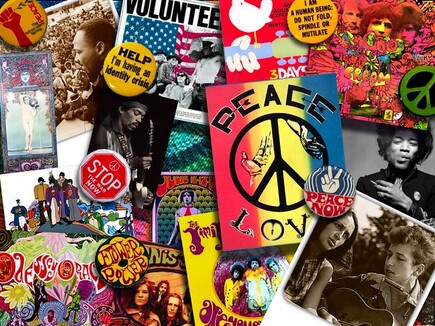 Does anyone speak 1960s? I need an interpreter. I am trying to crack the lyrical code. The 1960s have been described as tumultuous, turbulent, violent, and divisive decade. It was a time of dangerous incidents around the world and civil and political unrest at home. The country was engaged in the Cold War with Cuba and the Soviet Union. North Korea captured the USS Pueblo, a naval intelligence ship. The negotiations dragged on and on. Marchers and activists filled the streets of America’s cities demonstrating against racial injustices and the war in Vietnam. Teens and young adults no longer trusted parents, leaders, and government. A generation gap developed with traditional, conservative parents on one side of the divide and questioning, liberal, non-traditional, rock-and-rollers on the other side. Assassinations of politicians and civil rights activists filled the news. The 1968 Democratic National Convention in Chicago was surrounded by barbed wire, police, and protesters. I was just a child, but I was in the room when Walter Cronkite or Chet Huntley and David Brinkley delivered the news. Those black and white images are forever pressed into the pages of my mind. I will never forget the moment Walter Cronkite removed his eyeglasses and shed a tear as he reported that President Kennedy had been shot in Dallas. I watched my parents and other adults around me respond to each of these events. I didn’t understand it all, but I knew that it was serious and unsettling. Fast forward to 2020. The international, civic, and political climate seems similar. The big difference as far as I can tell is in the music. 1960s music is my favorite jam. Protest songs were gentle and thought-provoking and included songs like Sam Cooke’s A Change is Gonna Come or Bob Dylan’s Blowin’ in the Wind. A listener could feel the peace and love and calm the shattered nerves without selling out. But it was the '60s love songs that contained the mysterious mood elevator. If you can’t have peace, might as well have love. What was in that music? Someone spiked the punchline. These songs prove love has its own language, hence my need for an interpreter. In this contentious time, it is my civic duty to crack the code. Can’t we get some National Security folks workin’ on this? Here’s what I mean. Sing a few bars. You will feel the effects. Let’s start with this 1963 hit by The Crystals: I met him on a Monday and my heart stood still Da doo ron ron ron, da doo ron ron Some boy told me that his name was Bill Da doo ron ron ron, da doo ron ron In 1964 Manfred Mann had the hit Do Wah Diddy Diddy: There she was just a-walkin' down the street, singin' ' "Do wah diddy diddy dum diddy do" Snappin' her fingers and shufflin' her feet, singin' "Do wah diddy diddy dum diddy do" She looked good (looked good), she looked fine (looked fine) Moving along to 1967, a song from the musical Hair became very popular: Glibby gloop gloopy Nibby Nabby Noopy La La La Lo Lo Sabba Sibby Sabba Nooby abba Nabba Le Le Lo Lo Tooby ooby walla nooby abba nabba Early mornin' singin' song Good morning starshine! By 1968 the Beatles got in on the act: Desmond has a barrow in the marketplace Molly is the singer in a band Desmond says to Molly, girl, I like your face And Molly says this as she takes him by the hand Ob-la-di, ob-la-da, life goes on, bra La-la, how the life goes on Ob-la-di, ob-la-da, life goes on, bra La-la, how the life goes on I think I might have been at the wedding of Desmond and Molly Jones. When I sing along, I can practically remember dancing with the groom. If only we could get our da-doo-ron-ron’s to do-wah-diddy-diddy and nibby nooby abba nabba maybe we could ob-la-di, ob-la-da as life goes on. The answer to feeling better is in the music. I swear it is so. In-a-gadda-da-vida, baby! 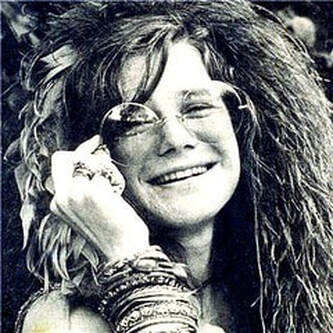 I am infected by an earworm. Janis Joplin singing Me and Bobby McGee. The song was written by Kris Kristofferson and first recorded by country artist Roger Miller in 1969, but I became familiar with it sometime later in the 1970s after Joplin’s album Pearl was released and her version of Bobby McGee moved up to number one on the music charts. Kris Kristofferson and Gordon Lightfoot made their own recordings of Me and Bobby McGee as have more than 45 others artists. I had many of the early versions in my teenage record collection. Back then teens didn’t walk around with ear buds listening to their music. In the time before the smartphone, iPods, MP-3 players, before the cassette tape and the Walkman, before boom boxes and CDs, teens lay around their bedrooms with the stereo playing, the arm set to automatically replay a new or favorite album over and over and over again. The repetition was like a drug. We craved just one more hit. The song got into our heads and left us anesthetized on the floor or flopped across the bed. Each repetition seemed to become more illuminating, more meaningful. The lyrics were deep. Heavy, man! Perhaps it was my generation that gave birth to earworms. Listening to a song that many times in succession was bound to lead to brain damage and hearing issues. In high school, I preferred the softer Kristofferson and Lightfoot versions of Bobby McGee, but I think Joplin’s rendition might be coming back to me now as the anthem for this pandemic. No one else of her generation could sing the blues quite like Janis. Even if her screeching sometimes became too much, Joplin was mesmerizing. It was evident from her vocals that Janis lived on the edge of danger and heartache. Janis knew what she was singing about. The proof came later when she died at the young age of 27 from an accidental heroin overdose. Janis Joplin did not live to see the success of her album Pearl or hear that her version of Me and Bobby McGee rose to number one on the Billboard charts. Biographers report that Janis was born different and required more attention than her siblings. She was bullied in high school, already a thing in 1960. In college, Janis went her own way, going barefoot and carrying an autoharp in case the music moved her. Joplin was known to be rebellious, a drug user, and a heavy drinker. She was often seen or photographed with Southern Comfort in her hand or at her side. Janis was a talented young woman with a fluid identity in a confusing time. Young people felt shackled and wanted to defy the rules, push beyond the boundaries of society. They didn’t trust anyone over 30. Janis embodied the rebellious, push-the-limits, raw, edgy, unconventional, youthful outlaw of that era. All of this is sounding familiar. And contemporary. I hum along with my earworm: Busted flat in Baton Rouge…Feeling near as faded as my jeans……my dirty red bandanna…Playing sad while Bobby sang the blues…Freedom’s just another word for nothin’ left to lose…..I would trade all my tomorrows for a single yesterday… Though the song is about a relationship, loss and regret, Janis’s life and the song’s words speak to me of the present pandemic circumstances. Despite the song’s sad storyline, the strains of Janis’s lively, soulful, bluesy, voice and the amazing piano accompaniment energize me. Somehow singing along and remembering relax me and momentarily relieve me of my pandemic worries. I feel good. And feeling good is good enough for me. 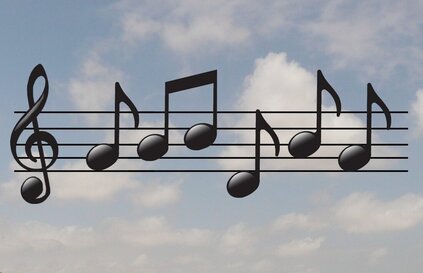 Tonight I am going to see a production of the Music Man at a local high school. The film version came out when I was a little girl. I can still sing the words to most of the songs—“seventy-six trombones led the big parade,” and “there’s gonna be trouble, right here in River City,” and, of course, there was romance as well as trouble, “I love you madly, madly Marian, Madame Librarian.” The rhythms are irresistible. Every listener becomes a member of the marching band. Music is important to a happy life at any age. It releases dopamine, the pleasure chemical in the brain, improves mood, and helps new learning to stick, but we don’t need to understand the science. Experience tells us that music makes everything better. When I was young and my father was in the military, our family spent many long days traveling from one part of the country to another. My siblings and I saw a lot of the United States from the back of a Rambler station wagon. The interstate highway system did not exist as it does today. Much of the drive between California and Ohio took us through the middle of nowhere. There were no cell phones, iPods, or portable DVD players. There were not even cassette tapes or CDs. Radio reception was infrequent. We had to make our own fun for thousands of miles. My mom was great at keeping us occupied by conducting sing-alongs. The miles flew behind us as we belted out Doris Day hits like Que Sera, “what will I be…handsome or rich…?” And maybe everyone knows that an ant can’t move a rubber tree plant, but we knew otherwise, because, as Frank Sinatra told us, “he had high hopes, high apple-pie in the sky hopes.” We understood that ant because we had high hopes too as we moved from place to place. Fast food restaurants were not a thing back then. There was an occasional Stuckeys, famous for pecan logs and clean restrooms. I still love pecans! Those were special because most of our long journey was fueled by Spam and Premium Saltine Crackers. And we were starved and exhausted from all of that singing! My father enjoyed listening to the radio. He loved Patty Page and The Tennessee Waltz about a stolen sweetheart. I once caught my mother jammin’ in the kitchen to the Fifth Dimension singing Up, Up and Away. In my Aunt Addie’s house the stereo played while we made Christmas cookies in the next room. Addie loved Frank Sinatra who made us all love New York. Barbra Streisand was also on Aunt Addie’s play list. In later years, I introduced my aunt to Smokey Robinson and the Miracles. As I inched along in life, I became a devoted fan of everything Motown. When I was eleven, I got a portable eight-track tape player and a few Motown tapes. That was the best Christmas ever! Wish I still had that thing. Through my teen years, I grew a large collection of vinyl 33 LPs and listened to music up in my room, trying to teach myself how to play the songs on my guitar. As an adult, music continued to provide fuel for my trips here and there and energized my morning shower, beginning my day with a dose of joy. When my first child was born, a friend gave us a cassette tape, the Lullabies of Broadway. The beautiful music mostly comforted her father and I during long sleepless nights with a screaming baby, “nothing can harm you, not while I’m around.” The cassette tape wore out a long time ago, but I have a newer version. I continue to listen to the songs and relive that precious time when I was a new mom soothing a sweet baby. Later, that baby girl grew up to love music and introduced me to new songs and artists. One day in a card shop I heard a new voice singing old Frank Sinatra hits. I asked my daughter who was singing. She told me about a new star named Michael Buble. I’ve been to two of his concerts since that day. I love that he brought back the old music our parents loved and made it new for another generation. My son was the one who introduced me to Luther Vandross and the aching words of Dance with My Father Again, and "a house is not home if there is no one there to hold you tight..." My brother died suddenly in his sleep at the age of 37. The music of Dan Fogelberg brings my brother back to me. My brother introduced me to Fogelberg and The Innocent Age album. The music is so soulful and the lyrics so beautiful such a when he sings about his father’s “thundering velvet hand,” or “longer than there’ve been fishes in the ocean, …I’ve been in love with you.” I enjoy the voices of my favorite singers, but I also appreciate the voices of the instruments themselves, voices that can both reflect and change my mood. Sometimes I need a quiet piano, while other times I need the lively horns, or the heartbeat of percussion. Music enlivens and it comforts. And I love, love, love the earnest, joyful voices of children. Kindergartners are all rock stars! I appreciate the image that heaven will be filled with trumpets and horns and choirs of angels. How could a place be heaven without music? When it is my time, sing me home! I won’t be surprised if the angels look like Diana Ross and the Supremes, “Stop! In the name of love,” they will sing at the gate. Even if I’m wrong about who the headliners will be, I know one thing for sure--heaven has a hell of a band. The Righteous Brothers told me so. |
AuthorLilli-ann Buffin Archives
July 2024
Categories
All
|
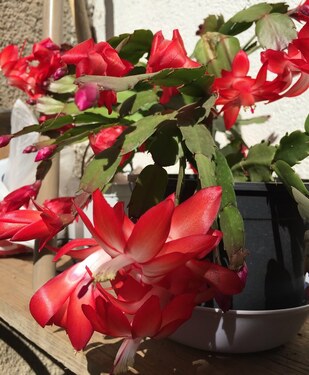
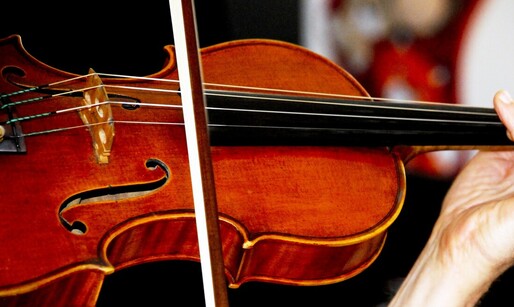

 RSS Feed
RSS Feed